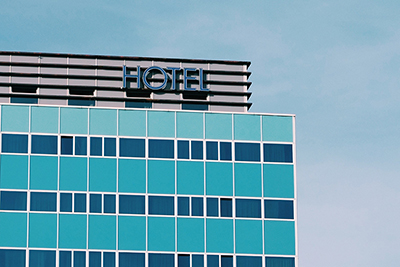
JLL Notes Hospitality Market ‘Disconnect’

JLL, Chicago, noted a “disconnect” between hospitality fundamentals, which it called exceptionally strong for many assets, and debt markets, which have been deteriorating meaningfully.
“In the current environment, inflation and the Federal Reserve’s response have taken center stage despite the strong fundamentals,” JLL said in its Hospitality Debt Market Overview. “The credit markets fear that aggressive monetary tightening by the Fed could tip the economy into a recession, which has resulted in higher credit spreads and all-in loan coupons.”
JLL observed balance sheet lending spreads have generally increased by 25-75 basis points and single-asset single-borrower CMBS whole loan spreads widened by 150 basis points or more. Additionally, the SOFR floating-rate index, which tracks the Federal Funds Rate, has increased almost 150 basis points since January, with the expectation that the index could increase another 200-250 basis points by the end of the year if Fed monetary tightening continues. “As a result, all-in loan coupons are approximately 175 basis points to 300 or more basis points higher today, depending on lender type, compared to January, with the potential to be materially higher by year-end,” the report said.
Loan Pricing & Leverage
While spreads and loan coupons are higher, there is still liquidity for hospitality loans on existing assets, with all major lender types–banks, debt funds, life insurance companies and fixed/floating-rate CMBS lenders–quoting hotel loans, the report said. “Lenders are becoming more selective on the types of hotel loans they will originate and some may begin to offer lower leverage,” JLL said. “Banks are providing the lowest cost of capital, but are focusing on the best deals and/or existing clients. Banks continue to be the most selective lender type and have adjusted spreads the least during this period of volatility.”
Banks’ maximum leverage generally remains at 65 percent, “although we’re beginning to see downward pressure on leverage,” JLL said.
Debt funds remain active in the hotel sector and offer the highest leverage, but are generally the most expensive lender type, the report said. Debt fund spreads have increased 50-100 basis points this year, but leverage has held steady at 65-70 percent. “We expect these leverage levels to decrease as a result of greater economic uncertainty,” JLL said. “A significant challenge with debt fund execution today is that many funds are reliant on the CLO market for financing, and dislocation in the CLO market has created greater pricing and closing risk with some debt funds. Additionally, a number of funds rely on syndicating an A note to commercial banks, and with banks becoming more selective, many funds are finding it harder to syndicate the senior, which has caused some funds to pull back on hospitality originations.
JLL said life insurance companies have been “selectively active” in hospitality lending, offering pricing between bank and debt fund pricing, with leverage of up to 70 percent. “Life insurance company debt pricing has widened by approximately 25-50 basis points over the course of 2022,” the report said.
CMBS lenders, which have historically offered the highest leverage at the lowest pricing, have widened the most, with AAA CMBS bond spreads increasing by more than 100 basis points since early 2022 and whole loan spreads by 150 basis points or more depending on leverage. “The floating-rate AAA spreads that we’re observing represent post-COVID highs and are by far the widest levels that we’ve tracked going back to2013,” JLL said. “SASB CMBS leverage remains available down to 75 percent, however, as pricing as increased, we’ve seen borrowers voluntarily reduce leverage to drive down whole loan pricing.”
